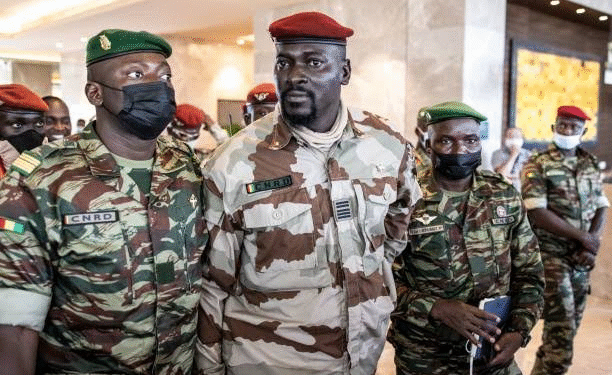Guinea’s military government has established a new electoral authority ahead of a constitutional referendum scheduled for September 21, sparking criticism from legal experts and civil society over the credibility of the planned vote.
The move was formalized through a presidential decree issued by junta leader General Mamadi Doumbouya and broadcast on state television late Saturday. The new agency, which will operate under the Ministry of Territorial Administration, is tasked with organizing political elections and referendums, managing the biometric voter register, and ensuring election security through the creation of a “special force.”
While the decree claims the body will enjoy financial autonomy, critics argue that its structure raises serious concerns about impartiality and transparency.
Reacting to the announcement, Mohamed Traoré, a former head of Guinea’s Bar Association, condemned the development in a Facebook post on Sunday. He accused the government of politicizing public administration and warned of potential manipulation.

“A public administration that is totally politicized, with officials acting like political activists, already casts doubt on the sincerity and credibility of the upcoming elections,” Traoré wrote. “If the same ministry responsible for overseeing territory is also in charge of elections, we can say the loop of control is nearly complete.”
Guinea has been under military rule since September 2021, when General Doumbouya seized power in a coup that ousted President Alpha Condé. Although the junta initially pledged to return the country to civilian rule by the end of 2024, that deadline has now been missed.
Instead, in April, the transitional government announced that a referendum on a new constitution would be held in September. Prime Minister Amadou Oury Bah later said the government would “do everything” to organize presidential and legislative elections in December.
In his New Year’s address, Doumbouya described 2025 as a decisive year for completing the return to constitutional order. However, recent public endorsements of his potential candidacy by government officials have fueled suspicion, especially given his prior vow not to seek office.
A transition charter adopted by the junta shortly after taking power had explicitly barred any junta member or transitional government official from contesting in future elections. Critics now fear that the adoption of a new constitution could nullify that restriction, effectively paving the way for Doumbouya’s candidacy.
The junta’s tightening grip on political processes has drawn increasing criticism from opposition parties and civil society groups, who warn that the democratic transition promised after the 2021 coup is rapidly eroding.









